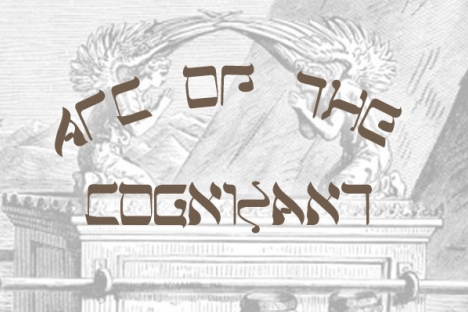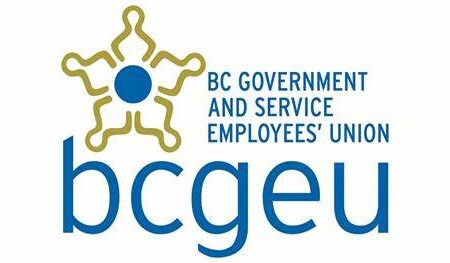COLUMN: Our people, our stories
“We all live in a network of stories. There isn’t a stronger connection between people than story-telling.” — J. N. Smith
Reconciliation, after Truth is taught
I have written in this column before about Truth and Reconciliation in Canada, most recently in the last Arc in December. I feel it’s a subject that I might contribute to because I’m an historian. I want to urge people to know history so they act with a social conscience in our present politics where policy toward First Nations is concerned.
The indigenous humans of this land, the people native to it, have been here a lot longer than the people whose genomes are in me. My DNA is European.
An appropriate attitude
Colonists came to Canada and their European culture nearly annihilated that of the indigenous people. The importance of story and oral history for natives is not correctly compared to how our dominant culture studies our history in our academic and media institutions; we study history for reasons less crucial to our identities.
I’m an historian by training, profession, and self-identification of my character. I tell stories about my people’s past. Am I different from any indigenous person who tells tales of their people in the past? Since I am of the dominant culture of Europe, my historian’s function is of quite a different order of importance to my people and their social/cultural lives.
History and story are less crucial to an individuals who are WASP, male, and privileged to be well-educated: examples of the fortunate Canadian in the dominant culture. As one such, my identity is not threatened.
Stories of a People
In this column, I have made cases for my people to learn more history, “our” Western history. I try to keep interest in history alive on my co-op-radio program, The History Hour, at CJLY-fm in Nelson. European and Canadian history is my area of study, but I am not primarily a “story-teller” as natives understand that term in their cultures.
There’s nothing in indigenous love of story foreign to my Euro-colonial roots. The religious traditions of Europe, both Judeo-Christian and aboriginal-pagan (such as Celtics and Teutonics) are absolutely founded upon stories. Those tales of ancient religious heroes ought not be forgotten just because religious faith is not as it was, nor strong piety and deep conviction, as in our past.
We still love old tales: they’re ours; they speak to our consciousness. We enjoy history, particularly fictionalized in visual form as film and television. And we love myths and legends of pre-Christian Europeans, such as tales of Thor.
Identity
Social and political commentators have noted for some time that the affluent postmodern culture we live in is one much absorbed by issues of identity: sexual, generational, ethnic, political, social.
Identity is not an historian’s special concern, but I must make this point to readers: the strange syndrome of asserting an identity without substance — because “this is who I feel myself to be” — is having a bad effect on indigenous peoples. [see footnote *] I have a lot of trouble being non-judgmental toward those who claim a false identity.
Indigenous people were threatened by colonists’ culture’s pervasive power to erase their own culture — especially when state and church institutions are intended to “kill the Indian in the child (and adult)” [ – Canada’s shameful policy in recent history]. They have a relationship to their stories and histories unlike what I feel. It is good to observe that our legal system is now giving credence to indigenous story as part of court evidence; we used to reject it.
Please take time to read these two explanations for why stories are crucially important to First Nations. They are not long, and they are essential to understanding.
https://open-book.ca/Columnists/Indigenous-Identity-and-the-Responsibilities-of-Telling-Stories
And a more academic perspective:
https://brill.com/display/book/9789004465916/BP000023.xml?language=en
Dominant Culture
Historians of Western civilization are not “storytellers” now, but professionals.
We read popular historians like Barbara Tuchman and Tom Holland; they sell many books of history with fine narrative skill and scholarly credentials. Whether people read history is a matter of personal taste if they’re of the dominant culture.
History seems unimportant to many of us now — no matter the constant sermon that “we must learn the lessons of History.” Natives need their stories for survival as a distinct People, in a way Euro-Canadians, living a dominant culture, simply don’t need.
Responsibility to Truth
Histories by professionals, of what was done to natives and the motives for it, have to be true and scholarly, not propagandist. If one thinks the purpose of history is to make moral arguments for present political gain, then the type of history they write is going to have political bias. That is an abuse of history.
A new book, Grave Error by C. P. Champion and T. Flanagan, has been criticized, and applauded. A reviewer of this book has said: The flight from truth makes true Reconciliation impossible. Why will Canadians want to extend the hand of friendship to Indigenous people who continue to call them criminals and murderers? Why will Indigenous people want to engage in mutual cooperation with people whom they have been led to regard as criminals and murderers?
https://thecritic.co.uk/issues/april-2023/canadas-grave-errors/
I endorse the idea of the reviewer, that we do no good allowing false history to become a popularized and widespread version of fact. When I saw a poster in Nelson on July 1 saying “Canada Day celebrates Genocide,” I was not moved to sympathy with the propagandists; I was offended. Truth is not served by an agenda to accuse non-natives today of being complicit in genocide yesterday.
First People and My People
At this point, some readers have had a word pop into their heads. The word is “decolonize.” I’m being monitored by the thought police to see if I will use this popular neologism to apologize for my people, the European colonists.
No, I will not. Racial guilt is a discredited idea. I have no guilt inherited from my racial antecedents.
Conclusions
I have argued that colonists’ descendants should confront guilt and shame about the colonial past; it seems that we are urged to feel that, but I reject it. We should feel moved to make restitution for past errors but not to take on the burden of responsibility for our ancestors’ crimes, prejudice, and racialism.
One, Know the truth, and Two, make policy to correct wrongs. Knowing truth means some difficult reading of scholarly history. Making policy means being an active citizen and engaging our politicians to do the right thing.
Canada’s many Treaties with natives have been frightfully dishonoured. We should start there to make things better.
FOOTNOTES
*False claimants of indigenous identity have made a lot of trouble for themselves and for Truth and Reconciliation.
Here is a sampling of recent stories about this disturbing phenomenon.
https://www.theglobeandmail.com/arts/books-and-media/joseph-boyden/article35881215/
https://indiginews.com/first-person/our-identities-have-become-one-more-thing-for-canada-to-steal
https://anishinabeknews.ca/2023/12/18/opinion-buffys-legacy-is-the-real-deal/
– – – – – – – – – – – – – –
## If you care to know more about this: https://www.uv.es/garzon/psicologia%20politica/N32-7.pdf
And https://www.quora.com/How-long-will-Germans-remain-in-the-Holocaust-guilt



























Comments